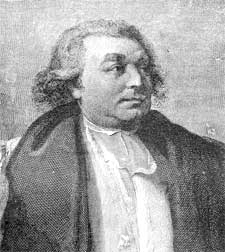Rev. Molly F. James, PhD
St. Alban’s, Simsbury, CT
Morning Prayer, Advent 1, November 29, 2020
Psalm 80:1-7, 16-18;Isaiah 64:1-9; 1 Corinthians 1:3-9; Mark 13:24-37
May God’s Word be spoken. May God’s Word be heard. May that point us to the living Word who is Jesus Christ our Lord. Amen.
“And what I say to you I say to all: Keep awake.” Keep awake. Really? That’s the last word of our Gospel for today? Keep awake? Well, I don’t know about you all, but that is not really what I was hoping for today. An admonition? About staying awake? Dear God, can’t you see how exhausted we all are. We are weary. And the days are short. We need more sleep. There are even days when we would like to just say, “Could someone please wake me up when this is over?” We want a break. We want things to be different and all we are told is to stay awake? Where is the comfort in that?
Actually, when I pause, when I take a moment to breathe and reflect, I find myself wondering if our text is offering us an invitation rather than an admonition? What if it is not a harsh command to keep going past our breaking point? What if it is an invitation, a gentle reminder to pay attention because God is at work in the world? An invitation to remember that there is light in the darkness. Always.
It would be easy to see this text as an admonition. It is Advent after all. A season that is not just about waiting for Christmas. It is also a time when we are invited to take the long view, the cosmic view. A time when we are invited to see that there is more to life than the here and now. A time when we are invited to remember that our actions, our choices matter. They matter to God and the matter to the world. How we live our lives matters, because we have the power to make a difference in the world. We have the power, the opportunity to be a part of building up God’s kingdom. We have the opportunity to be a part of transforming the world.
But we cannot do that if we are asleep. We cannot do that if we fail to pay attention. We cannot do that if we choose to turn away from God.
And the fact that we can choose to turn away from God, that we have that power, brings me to a description of Hell that I find very compelling. In his book, Tokens of Trust, which is an exposition of the Apostle’s Creed, Rowan Williams describes “Hell” as God eternally knocking on a door we are struggling to hold shut. Oh. That is a bit different than brimstone and lakes of fire. Hell, judgment, separation from God are not some threat looming over our heads. Hell is a choice we make. A place we find, because we have chosen to turn away from God’s ever present love.
Now, you may be thinking, phew! That’s easy. I mean, why would we turn away from God? But here’s the thing, and why I think we need the invitation from today’s Gospel. We need to be alert. It is not always easy to see the path that leads us toward God.
Sometimes we get stuck because we are exhausted and we cannot think straight. Sometimes we are full of fear and anxiety and we want to do something quickly, really just do anything to lessen our fear or anxiety. Sometimes we are stuck in a pattern that no longer serves us. Sometimes we are angry, and we just want someone else to feel our pain. For any number of reasons, it is certainly possible, sometimes even seems easier, for us to choose the wrong path. To choose a path that takes us away from God.
So what might it look like for us to stay alert? What might it look like for us to pay attention? I realize this sounds like one more thing to add to an already long to do list in this Advent season. This complicated, confusing, exhausting Advent season that does not look like any we have known before. But here’s the thing. I actually think that figuring out how we “keep awake,” and how we “stay alert” might actually make everything else better.
We do all know how to do this. We know the practices that help us. We just need reminding. I know I do. I can myself far down a road of anxious what ifs or so wound up in my to do list. I need help. I need those beloved people in my life, who say, “Molly, slow down.” Those voices who remind me to take care of my physical and spiritual well-being. Those people who say, “Wait. How can I help?” Whose wisdom helps me to see the bigger picture or a way forward I had not considered.
It’s Advent. And we are waiting. We are waiting for Christmas. We are waiting for the transformation of the world. And here’s the thing. This is not, should not, be sitting around twiddling our thumbs kind of waiting. We are not powerless. We have the opportunity each and every day in the choices we make, in how we live our lives - from simple smiles and acts of kindness, to where we spend our money, to how we use our power and influence in decision making, in the connections we make - we have the opportunity to be a part of building up the kingdom. We have the opportunity to make a difference, even on a small scale - it matters.
There is our hope. Change is possible. Darkness does not last. It will not last because we can bring more light. Together. Each day, by choosing to draw closer to God. Amen.



